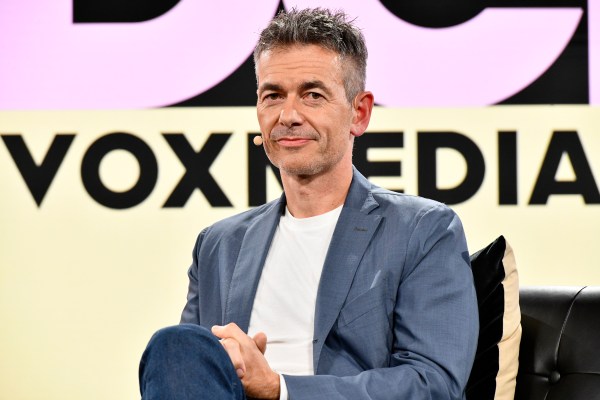Warner Music CEO Robert Kyncl believes AI will be significantly impacting the music industry within the next year. Speaking at the Code Conference this week, the industry exec said the industry should soon expect the increasing quality of music made with AI technologies that comes at a very fast pace, and the industry’s best bet is to embrace the technology.
“Look, you have to embrace the technology, because it’s not like you can put technology in a bottle…like the genie is not going back in,” he said.
However, Warner Music has plans to address the rightsholder issues that come with AI technology that’s used to create songs that sound like existing artists, he noted.
“There’s a very clear analogy to user-generated content — we have a blueprint for this,” the exec explained. At YouTube, for example, people had begun to upload loads of copyrighted material, which put the platform in hot water with different copyright holders who then sued. This became an issue that YouTube had to address with technology.
Kyncl, whose background includes more than 12 years as YouTube’s chief business officer before moving to Warner Music in January 2023, helped steer the company’s development of a fingerprinting software — Content ID — that allowed YouTube to track the copyrighted material on the platform and build out a commercial relationship with copyright holders to ensure they got paid.
“We built a multibillion-dollar business, which now is a multibillion-dollar business per year,” Kyncl noted. “It was an incredible revenue stream for everyone. AI is that, with new super tools. We need to approach it with the same thoughtfulness and we have to make sure that artists have a choice,” he said.
That is, artists who don’t want to participate could opt out, but those who do could ensure they are protected.
“We got the blueprint from [user-generated content] and now we have to figure out the fine print for AI,” Kyncl said.
This system is not yet developed, but Kyncl said people are working on it and things are evolving quickly. In addition, Warner Music is focused on working collaboratively with the largest platforms, like YouTube, TikTok and Spotify, to help it define the rules of the road as these technologies are developed.
YouTube recently announced, for example, that it’s working on a plan to compensate artists and rightsholders for AI music. But it’s kicking off the program with Universal Music Group (UMG) and its roster of talent. UMG had already been using the copyright-strike system to pull AI music from YouTube and has taken steps to prevent AI companies from using its music to train their models. But likely other stakeholders, like Warner Music, are already a part of these discussions at YouTube.
In addition to the fast pace at which AI is impacting music, Kyncl also noted that he believes AI innovation will impact the music industry ahead of its impact on TV and film — a concern that was raised during the recent Hollywood writers’ strike, who were worried studios would attempt to use AI to avoid paying union members for their work.
“Music, because it’s so broadly distributed and it’s so well aligned with the internet because it’s a short format. It lends itself to recommendations. It’s on all platforms and is generally first in most transformations and most innovations,” Knyncl explained. “So, I would say it probably shows up earlier.”
“Whatever happened to the music industry 20 years ago is starting to happen in the movies and TV shows now,” he added.
Knyncl noted, too, that the law will need to evolve to address AI music.
“Name, image likeness, and voice should have the same protections as copyright and the same simple protections as copyright, but it will take time,” he said. I believe it will get there, but it will take time. And in the meantime, we’ll work with the distribution platforms collaboratively to run ahead of that.”
